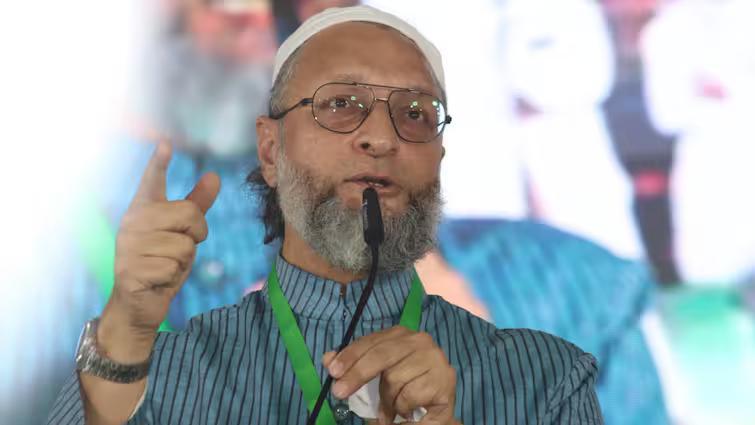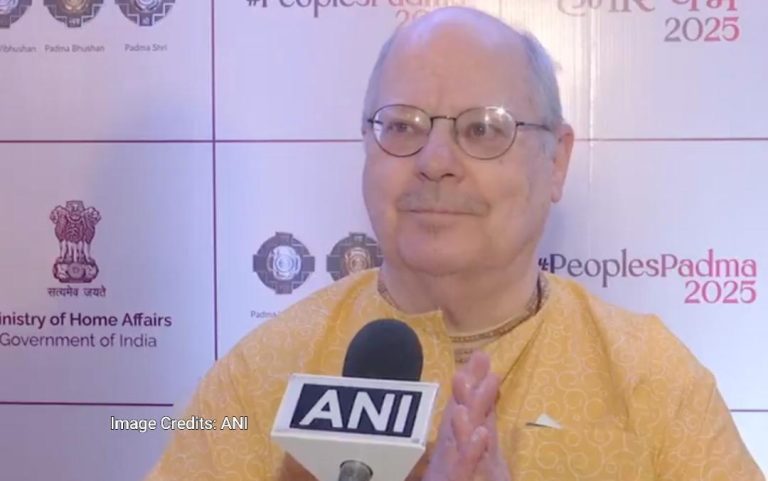
Pak acted like ISIS, India won’t sit quietly: Owaisi on J&K attack
In a recent statement, All India Majlis-e-Ittehadul Muslimeen (AIMIM) chief Asaduddin Owaisi sparked a controversy by comparing Pakistan’s actions to those of the terrorist organization ISIS. His remarks came in the wake of the Pahalgam terror attack, which claimed the lives of 26 people.
On April 22, a group of terrorists attacked a bus carrying Hindu pilgrims in Pahalgam, Jammu and Kashmir, leaving a trail of destruction and death in its wake. The attack has sent shockwaves across the country, with many condemning the brutal act of terrorism.
Owaisi’s comments came during a press conference, where he said, “Pakistan acted like ISIS. If they enter a country and kill innocent people, that country will not sit quietly.” His statement was a clear warning to Pakistan, indicating that India will not tolerate such acts of terrorism on its soil.
The AIMIM chief’s comments have been met with widespread criticism, with many accusing him of being divisive and provocative. However, Owaisi’s statement also sparked a debate about the need for a strong response to Pakistan’s actions.
Pakistan’s budget, which is reportedly around $14 billion, is a minuscule fraction of India’s military budget, which stands at over $50 billion. Despite this, Pakistan has been known to inflate its military spending and engage in a proxy war with India in Jammu and Kashmir.
The Pahalgam attack is the latest in a series of terrorist incidents that have targeted Hindu pilgrims and tourists in Jammu and Kashmir. The attacks have been attributed to Pakistan-backed terrorist groups, which have been waging a proxy war against India in the region.
Owaisi’s statement is a clear indication that India will not sit quietly in the face of such attacks. The country has been urging Pakistan to take concrete action against terrorist groups operating on its soil, but Islamabad has so far refused to do so.
The Pahalgam attack has also raised questions about the effectiveness of India’s security measures in Jammu and Kashmir. The state has been under President’s Rule since August 2019, after the Bharatiya Janata Party (BJP) government in the state collapsed.
The attack has also sparked a debate about the need for better communication and coordination between the Centre and the state government. The Centre has been accused of not providing sufficient assistance to the state government, which has led to a breakdown in security measures.
The Pahalgam attack is a stark reminder of the dangers posed by terrorism in Jammu and Kashmir. The region has been a flashpoint for decades, with both India and Pakistan claiming sovereignty over the territory.
The attack has also highlighted the need for a sustained and coordinated effort to combat terrorism in the region. The Centre and the state government must work together to ensure that such attacks do not recur.
In conclusion, Asaduddin Owaisi’s statement is a clear warning to Pakistan that India will not sit quietly in the face of terrorism. The Pahalgam attack is a stark reminder of the dangers posed by terrorism in Jammu and Kashmir, and it is imperative that the Centre and the state government work together to ensure that such attacks do not recur.



